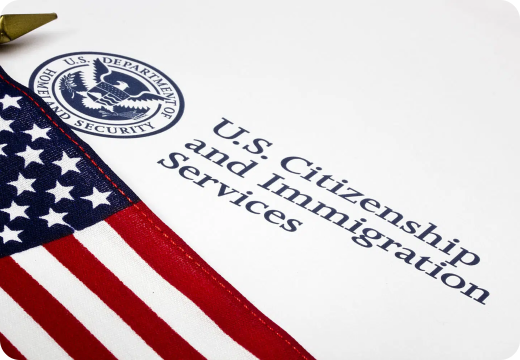When it comes to translating official documents, accuracy and reliability are paramount. Whether it’s for immigration, legal proceedings, or business transactions, poorly translated documents can result in delays, rejections, or even legal complications. At Middle East Services, we specialize in certified translation services for a variety of official documents, ensuring that they meet the required standards for acceptance by authorities. In this post, we’ll share the best practices for translating official documents to guarantee accuracy and reliability.
1. Understand the Purpose and Requirements of the Document
Before starting any translation, it’s important to fully understand the purpose of the document and the specific requirements of the agency or institution that will receive it. For instance:
- Immigration documents often have strict guidelines from government agencies like USCIS (U.S. Citizenship and Immigration Services), which require certified translations.
- Legal documents may need to adhere to specific terminology and formats, depending on the jurisdiction.
- Business contracts must retain exact legal meaning to avoid misinterpretation or disputes.
Knowing the purpose helps the translator focus on the key elements of the document and ensures compliance with the relevant standards. At Middle East Services, we provide translations specifically tailored to meet the requirements of immigration offices, courts, and other institutions.
2. Work with Professional and Certified Translators
Official documents should always be translated by professional and certified translators who have experience in the relevant field. These professionals understand the legal and cultural nuances required to deliver accurate translations. Certified translations are often necessary for official submissions to:
- Government agencies (for immigration, citizenship, visas)
- Legal institutions (for contracts, court documents)
- Academic institutions (for diplomas, transcripts)
Certified translators provide a signed statement attesting to the accuracy of the translation, which is critical when submitting documents to immigration or legal authorities.
3. Maintain Formatting Consistency
When translating official documents, maintaining the original formatting is crucial to ensure that the translated version mirrors the structure of the source document. This includes:
- Headers and Footers: Ensure that all official seals, logos, and signatures are positioned in the same place.
- Numbering: Maintain the same numbering system for clauses, sections, or paragraphs, particularly in legal or contractual documents.
- Spacing and Layout: Keep the layout as close as possible to the original document to avoid confusion or misinterpretation by the recipient.
Proper formatting reflects the professionalism of the translation and ensures that important elements like page numbers, headings, and footnotes are easy to cross-reference.
4. Pay Attention to Legal Terminology
Legal and official documents often contain specialized terminology that must be translated accurately to retain the exact meaning of the original text. Misinterpreting legal terms can lead to severe consequences, such as contract disputes or rejection of immigration applications.
- Use Appropriate Terms: Translators must be familiar with both the source and target languages’ legal systems to choose the right terminology.
- Stay Neutral: Ensure that the translation remains neutral and doesn’t introduce any unintended interpretations or biases.
At Middle East Services, our translators are skilled in translating legal documents and can ensure that all technical and legal terms are accurately rendered.
5. Ensure Cultural Sensitivity and Context
Translation is more than just converting words from one language to another. It involves understanding the cultural context behind the text to ensure that the meaning is preserved. This is especially important when translating documents that involve personal or business information, such as:
- Immigration applications
- Birth certificates
- Marriage certificates
- Diplomas and academic transcripts
An experienced translator will be aware of cultural differences and know how to handle idiomatic expressions or culturally specific references. For example, names and addresses might need slight adjustments to fit the conventions of the target language without losing their accuracy.
6. Use a Second Set of Eyes
Even the most skilled translators can make mistakes or overlook small details. That’s why it’s a good practice to have a second professional review the translation for quality control. This additional step ensures that:
- The translation is free of errors or typos.
- The document reads naturally in the target language.
- All details (dates, numbers, names) match exactly with the original document.
At Middle East Services, we always have a second certified translator review each document to guarantee its accuracy and reliability before delivering the final version to the client.
7. Provide a Certified Translation Statement
For official use, many institutions require certified translations. This means that the translator or translation service must provide a signed statement attesting that the translation is complete and accurate to the best of their knowledge.
This certification is essential for many purposes, including:
- Immigration paperwork: USCIS and other immigration bodies require certified translations for documents such as birth certificates, marriage certificates, and legal contracts.
- Legal proceedings: Courts often need certified translations for evidence and official documentation.
- Educational qualifications: Academic institutions may require certified translations of diplomas, transcripts, and other educational documents.
By using Middle East Services, you can rest assured that your translations will include a valid certification statement, ensuring acceptance by the required authorities.
8. Stay Up-to-Date with Legal and Administrative Changes
Laws and regulations regarding document submission and translation requirements can change over time, especially for immigration and legal purposes. Translators and translation services need to stay updated on:
- Changes in immigration laws that may affect which documents need certified translations.
- New legal terminology or procedural changes that impact how translations are handled in court or legal settings.
At Middle East Services, we keep track of the latest legal requirements to ensure that our translations are always compliant with current rules.
How Middle East Services Can Help
At Middle East Services, we understand the importance of precision in translating official documents. We offer:
- Certified Translation Services: For immigration, legal, and business documents.
- Notary Public Services: To ensure your documents are authenticated and legally valid.
- Expert Consultation: To guide you through the translation and submission process, making sure your documents meet all necessary requirements.
Conclusion
Translating official documents requires careful attention to detail, legal knowledge, and cultural sensitivity. By following best practices and working with certified professionals, you can ensure that your translations are accurate, reliable, and accepted by the relevant authorities. At Middle East Services, we are committed to providing top-quality translation services to help you meet your documentation needs with confidence.
For expert translation services, contact us today!


